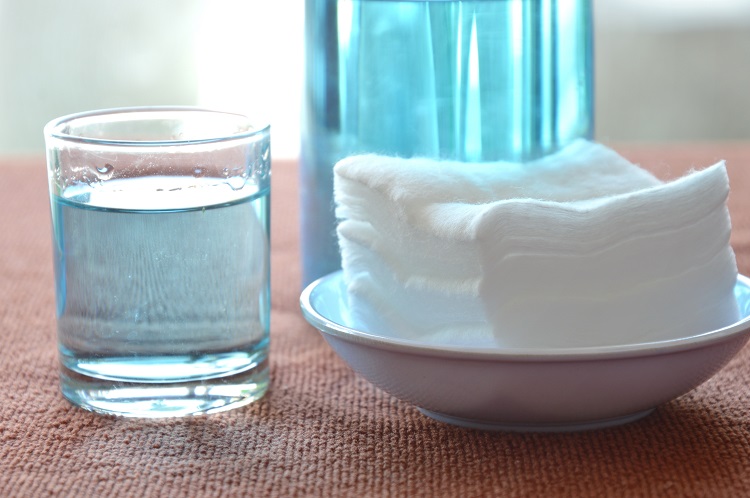Sensitive Teeth Home Remedies: 8 Ways to Treat Tooth Pain
Have your teeth ever hurt when eating ice cream or sipping hot soup? Is a cold breeze enough to make your teeth feel cold?
If the answers are yes, you have 99% of tooth sensitivity - a condition that 51% of Vietnamese people experience. You must treat this condition as soon as possible if you do not want to cause additional dental damage.
Sensitive teeth (also called tooth sensitivity) is a condition which occurs when the protective enamel is worn out or the gums recede, revealing the dentin (the dentin is located under the enamel layer, which helps protect the inner nerves).
Since dentin is exposed, external factors (such as hot or cold foods, acidic foods, etc.) can irritate the nerves, causing tooth sensitivity.
Causes of tooth sensitivity

- Over-brush teeth, which erodes the protective layer of the teeth, causing the root canals and oral nerves to be exposed. When the canals are in contact with high temperatures or acidic foods, it can lead to tooth sensitivity.
- Eat a lot of acidic foods such as citrus fruits, kiwi, pickles, etc. which gradually erodes the teeth’s protective layer.
- Often scrape or sharpen your teeth, which gradually erodes the enamel and causes the dentin to be exposed.
- Use whitening toothpaste. Since many manufacturers add whitening chemicals to their toothpaste formulas, in the long term it will damage your tooth enamel.
- Mouthwash addict. Similar to many types of whitening toothpaste, some mouthwashes contain alcohol and other chemicals, which can make your teeth more sensitive.
- Have gum disease.
- Have too many plaques on the teeth. Plaque buildup can cause tooth enamel to wear out, resulting in sensitive teeth.
- Cracked or decayed teeth.
- The filling material falls off, accumulates in small gaps of the teeth, causing acid accumulation and breaking tooth enamel.
- Your teeth are aging. As you get older and your gums age, the cement beneath your gum line which helps to attach teeth to jawbones wear away. Without cement, your teeth will be in direct contact with food and may become more sensitive.
- Often have cold foods and drinks, ice or ice cream, etc.
Complications

Tooth sensitivity if not properly handled will lead to the following harms:
- Causing damage to the pulp and leads to some dental problems.
- Causing dental diseases such as gingivitis, periodontitis, tooth decay (you have to avoid brushing teeth too carefully since this can hurt your sensitive teeth, which cannot completely keep the mouth clean)
- Reduce the quality of life: People with tooth sensitivity must abstain from their favorite food and drinks - which cause irritation to the teeth, so they easily feel irritated and frustrated.
Home remedies
1. Use desensitizing toothpaste

Desensitizing toothpaste contains compounds that help to shield nerve endings from irritants. The most active ingredient is potassium nitrate, a compound that blocks pain signals traveling from a nerve in your tooth to your brain. Some other ingredients are calcium, sodium, silica, and phosphorus.
After a few uses, your sensitivity will be reduced. Dentists also recommend using a soft-bristle toothbrush and low-acid or fluoride mouth rinses.
2. Saltwater rinse

Salt is an effective antiseptic and it can also help to reduce inflammation. To alleviate pain symptoms from sensitive teeth, gargle with salt water twice daily. To use a saltwater rinse:
- Add ½ to ¾ tsp of salt to a glass of lukewarm water and mix well.
- Swish the solution in your mouth for up to 30 seconds.
- Spit out the solution (be careful not to rinse again with water).
3. Hydrogen peroxide

Hydrogen peroxide is a mild antiseptic and disinfectant. It is commonly used to help sterilize cuts, burns and other wounds to prevent infection. You can also use peroxide as a mouth rinse to heal gums and prevent inflammation.
To use hydrogen peroxide as a mouth rinse:
- Add 1 teaspoon of hydrogen peroxide to equal parts warm water and mix well.
- Swish the solution in your mouth for up to 30 seconds.
Spit out the solution. Rinse your mouth with water afterward to remove any remaining hydrogen peroxide.
4. Honey

Honey is an antibacterial agent that helps speed up the wound healing process while reducing pain, swelling, and inflammation. You just need to rinse your mouth with a solution of honey mixed with warm water, and the pain from sensitive teeth will quickly disappear.
5. Turmeric

In addition to cooking, turmeric is also used as a treatment for inflammation (the curcumin compound in turmeric is known for this effect). To reduce tooth sensitivity, you can massage ground turmeric on the teeth.
Another way is to make a mixture of 1 teaspoon of turmeric powder, 1/2 teaspoon salt, and 1/2 teaspoon mustard oil. Apply the paste on sensitive teeth and surrounding gums at least 2 times a day then rinse your mouth with clean water.
6. Green tea

Green tea is widely used in cancer prevention and cardiovascular health research thanks to its antioxidant and anti-inflammatory effects. Not only that, but green tea also helps improve dental health.
To deal with tooth sensitivity, use a sugar-free green tea solution like mouthwash twice a day.
7. Capsaicin

Capsaicin is a compound found in peppers. It has analgesic properties and has been used to treat burning mouth syndrome by reducing inflammation and pain.
For sensitive teeth, you can use capsaicin in the form of a topical gel or a mouth rinse. It may cause a burning sensation at first, but it will significantly reduce pain symptoms after you continue using it.
8. Vanilla extract

Vanilla extract has antiseptic and analgesic properties. It is helpful in treating the pain and itching of children when they begin teething.
To treat tooth sensitivity, pour vanilla extract onto a sponge or cotton ball, then apply to the gums for a few minutes. Repeat this process several times a day.
Prevention

While home remedies may temporarily reduce pain symptoms, there are a number of things you can do to prevent sensitive teeth. Methods of prevention include:
- Good oral hygiene: Brush your teeth after every meal and before bed, using floss to remove food particles in the gaps between teeth.
- Use a soft-bristle toothbrush to prevent irritation and abrasion.
- Limit your intake of acidic foods and drinks to prevent tooth enamel from being destroyed.
- Use a mouthguard at night if you often grind your teeth.
- Schedule a dental visit every 6 months.
Reference source
Services
Working Time
- Monday - Friday: 08:00 - 19:00
- Saturday: 08:00 - 18:00
- Sunday closed
Contact Info
- Hotline 1: (+84) 908 321 455
- Hotline 2: (+84) 931 857 885
- Mobile: (+84) 8 3925 8778
- Phone: (+84)2 838 258 778
- info@dentalrose.net
- rosedentalclinicvn@gmail.com
 English
English  Tiếng Việt
Tiếng Việt

